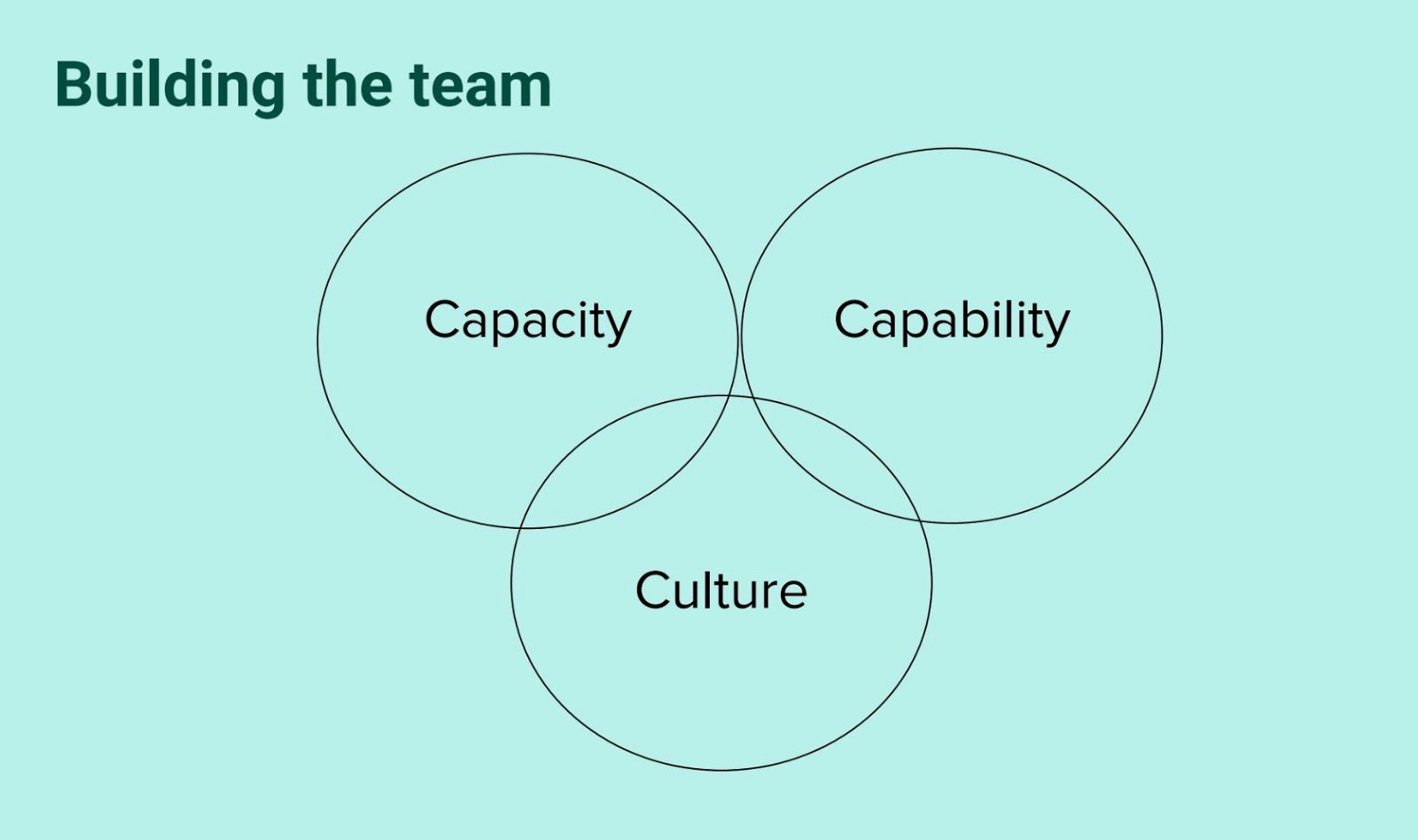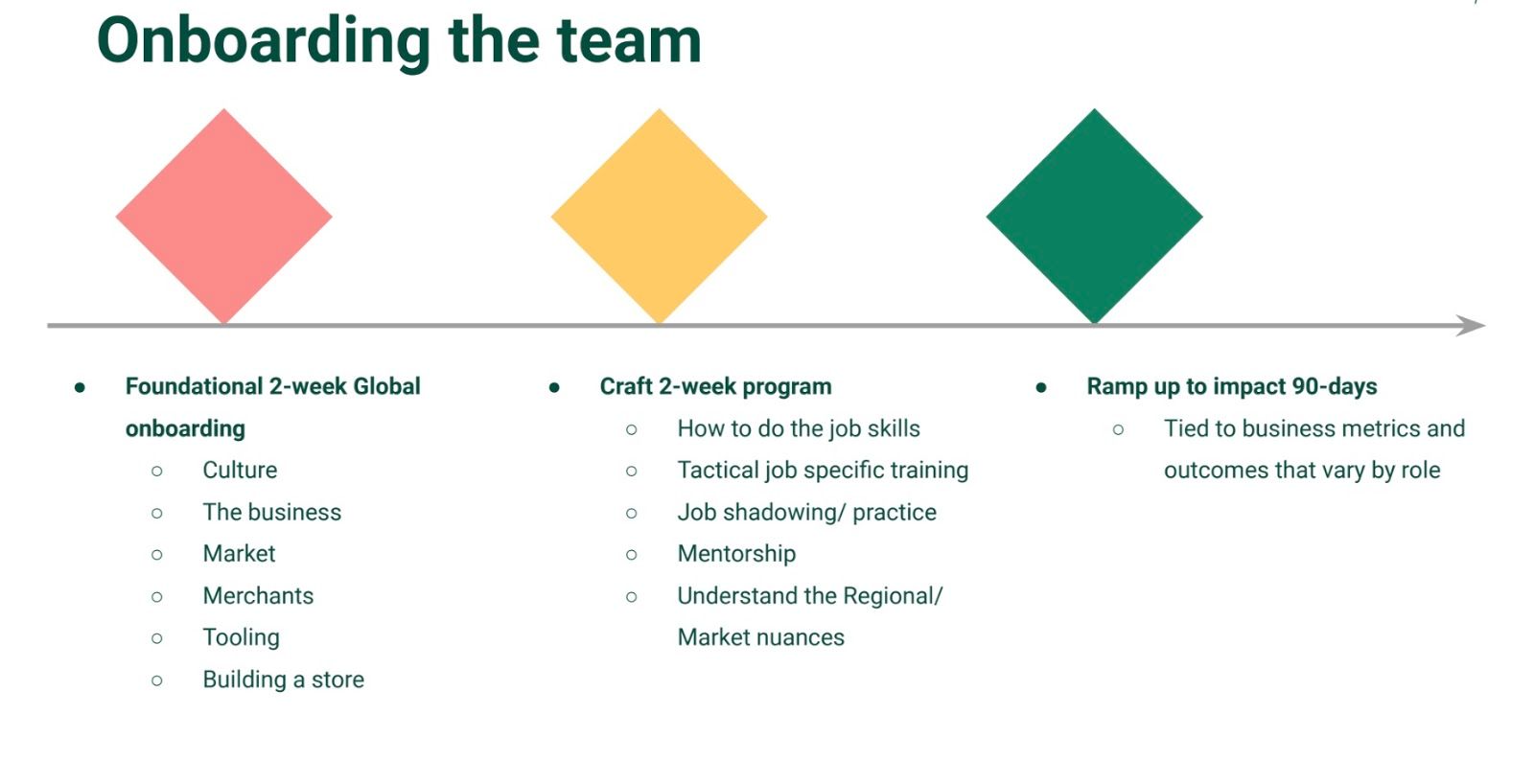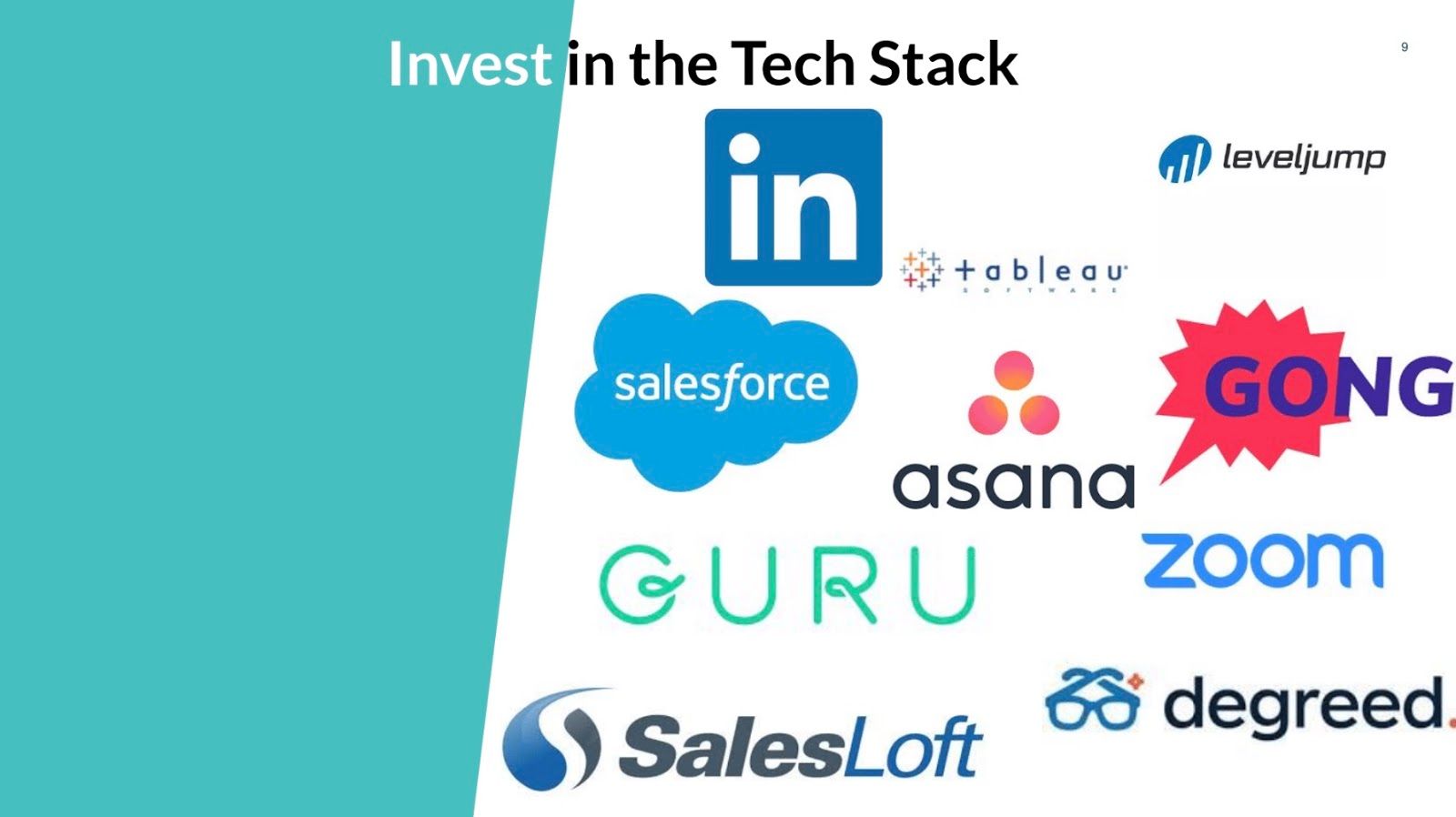Daniella Bellaire, former Head of Global Revenue Enablement at Shopify, gave this talk at our 2021 Revenue Acceleration Festival. Daniella is now the Chief Revenue Officer at Diversio
The global footprint of Shopify has grown significantly and, in this article, I’ll share the lessons I’ve learned throughout that journey when it comes to building for fast growth in a global team.
I’ll explain the role of enablement, my experiences both in revenue leadership and enablement leadership, what it means to be operationally excellent, my views on tech and tooling, the concept of taking bets, and finish off by discussing culture and career.
My name's Daniella Bellaire, I work for Shopify as Global Head of Revenue Enablement.
I'm going to talk about building for fast growth in a global team, how enablement plays a role in this, and my experiences both in revenue and revenue leadership, and enablement leadership.
I'll share a lens of how I think about both of those things.
A little bit about me
I've spent the last decade as a revenue and strategy executive focused on building and scaling revenue teams in both startup and large growth companies.
I care very deeply about professional development, growing the people that work for me and around me, solving problems to unlock growth in high-growth environments, creating scalable revenue models, mentoring the next generation of revenue leaders, and of course, just being active in the community.
The agenda
I'll talk through:
- Building a global team both from a standpoint of a revenue team - a sales team, and an enablement team. Because I've done both and I'm currently doing the latter.
- A little bit about what it means to be operationally excellent, and how you scale globally.
- How I think about tech and tooling, and it plays really nicely and parlays nicely into operational excellence.
- I'll close up by talking a little bit about culture and career.
Building a global team
Whether you're building an enablement team or sales teams globally, these are the three C's to, in my opinion, building a great team. Capacity, capability, and culture.

Capacity
You really need to think through the roles of individual contributors, leadership roles, builder roles or executive roles.
- What is the capacity of those individuals?
- Do you have the right amount of people to hit the growth trajectory you're slating for this year?
Capabilities
What are the skills you need, or experiences you need to bring into the team from a global level, to really help support the initiatives you want to get to this year, and to have that experience?
Culture
A lot of people use the term culture, I really do believe culture ties a lot of this together, it's a big component of retention, why people stay, it orients people to a bigger, broader vision and makes them feel like they're having an impact.
Building the team
Only having two of these three things makes you quite vulnerable, as you look to build and scale. Only having one makes you exceptionally vulnerable.
If you can figure out the sweet spot of having all three and getting ahead of the curve that to me, in my opinion, is building great teams. I'll talk a little bit more about this.
How do I think about this holistically?
When building globally, and I'm in the process of doing this right now, I'm rethinking my profile and I'm rethinking how we hire in our regional teams are to support our regional teams.
Of course, hiring should always be aligned with core values and missions of the company. But this is really your chance if you get to hire somebody at a global level to rethink things a little bit differently, and how you want to build your team. That's what I'm doing.
We've moved recently to a fully distributed team, we will no longer go back into the office, we will build globally in a fully distributed environment. It gives me an opportunity to rethink my candidate profile.
Hiring for experience vs. potential or acquiring new skills
Historically, I've hired based on a combination of experience, culture, do they lend to core values, maybe a little bit of competency alignment. But now I'm more focused on acquiring skills.
I need to know I have the capabilities on my team to do the things we need to do this year, get the jobs done, to grow at a global scale.
A sales example could be acquiring somebody that knows how to sell into a vertical or knows how to move upmarket, from an enablement standpoint for us, that might mean we need somebody with cultural nuance and regions in EMEA or APAC.
So I'm on a mission to acquire people for skills; how do I bring those skills into my team? Can they grow as fast as the company will grow? Is something I ask myself when building a team.
If you think about in a high growth environment, how quickly the business is growing for example, if your business is growing 100% year over year, in my mind, I start to think through:
- Am I hiring the talent that can also grow at a similar pace or a half pace?
- Can the talent grow 40% better? That’s the bar we set internally, every year.
We use this concept of re-qualifying for your job. So can you invest in your talent, can they invest in themselves enough to grow as fast as the business so the business doesn't outpace them? These are all things globally, that I'm thinking about, but it's also something good regionally.
Knowing how fast your business is growing, it's really important to hire people that are going to thrive on ambiguity, thrive on change. That concept of acquiring new skills is important in the sense of we need to hire certain people for certain jobs to be done.

Diversity in hiring
The other piece I think is really important, and everybody has a different opinion on this, but my view is diversity in hiring is so critical, especially on a global team.
In revenue, we tend to hire a lot of a lot like us. We get a referral from our network that looks like us, or folks on our team. To me, it's about being very intentional about hiring diverse people to bring different perspectives to the team.
As a leader, I've tapped into new communities, I've taken more LinkedIn meetings and more cold outreach. I've been very intentional about the architecture of my team.
As you think about how do we move quickly, how do we build globally? I think using the term of how do you architect your teams? How do you acquire those skills? How do you acquire that diversity?
A good example of diversity and how I'm thinking about it is, I need folks that know the cultural nuances of Australia or have potentially sold into Germany.
Those are skills and backgrounds and experiences I'm going to acquire, and I want to build a holistic and well-rounded global team that way.
Onboarding the team
So we've attracted some diverse folks, we've architected our global team, we're thinking through the three C's and now we're thinking about how do we bring people on to set them up for success?

Foundational 2-week global onboarding
We've essentially built a global program for onboarding for the first two weeks that are foundational. When somebody joins our company, we want them to get immersed in that culture.
Global culture, understand holistically what our business does, how we make money, how we operate, the markets we operate in, who our merchant base are, who our verticals are, and who do we go after, who's a great fit for our product?
What impression are you giving to your new hires? We want to give them a great first impression and this allows them to sit in the shoes of our merchant base, understand our product really well, and enjoy and build a lot of relationships in those first two weeks.
Craft 2-week program
Once they graduate from there, they go into more craft, more region-specific, more market onboarding. That's more tactical, how to do the role, specific job training, mentorship, shadowing, practicing, understanding any regional or cultural nuances for their market.
So we also want to be able to track and orient data to the enablement work we're doing. I think there's a lot of that theme in the last couple of years of how do you actually measure the success of enablement as a function?
For us, it's really important to have metrics and data, and I'll talk about that in the tech stack.
Ramp up to impact 90-days
But at the 90-day mark, we really tie everything to business metrics and outcomes. If it's a new hire on the enablement side, it could be a number of programs they've delivered, ratings of those programs.
It could be for the revenue side, obviously, time to first deal, quota, things like that. Again, making sure folks have a great first impression is so critical to building global high-performing teams.

Operational excellence
Operational excellence is so important to this mix of how I see things; you've got to hire great people, build a great foundational process globally and then have the technology and tooling to be able to scale and move very quickly and iterate and pivot.
Global standards with regional agility
From an operational excellence standpoint, I think about it as global standards with regional agility.
If we want to execute globally and move quickly with the business, we also want to give some autonomy to set markets or regions, however you've split up your business.
Our global team, for example, plays a massive role in setting the tone for the company, for the sales craft and the enablement craft, and sets the tone on what foundational infrastructure should look like from an operational standpoint.
Growth needs to be rooted in foundations
In order to scale fast, you want to root your foundations and enablement plays in some of these things: tech and infrastructure, tooling, training on core skills, data and reporting infrastructure - what do we measure?
It should be like for like, even though maybe some of the different areas of the business are trying some things that are different, we should be able to measure what success is.
We want to be able to say, if you call in from anywhere in the world, we're going to have the same type of messaging, the same type of value proposition, we're going to share with you similar content, but maybe with a little bit of a regional flair.
The last piece is cross-functional collaboration.
As companies get bigger and bigger, and more distributed, especially now we're all working from home, it's so important to have an operational process of how you collaborate cross-functionally.
Invest in the tech stack
From a tooling and infrastructure perspective, and to do it at scale, here's some of the tooling I use and we're thinking through.

You can’t scale sustainably without data and infrastructure
In a revenue organization, you cannot scale, in my opinion, sustainably without the data and infrastructure to build and iterate on processes.
If you can't understand, I'm gonna use some examples through Gong: without what a great call looks like for your sales reps, you can't create foundational processes.
If you can't have a great business operating system in something like Salesforce to pull data and reporting, it's going to be really hard to scale and measure the impact of your growth if you don't have the numbers.
The summary version of the tech stack is maybe not everyone can afford it, whatever stage you're at in your company, but if you can afford some things, invest in the technology because the incremental lift you're going to get for long term scale is tremendous.
Culture and career
The last big piece of the pie I'll talk about is culture and career.
Build a culture where people feel invested
Building a culture where people feel invested in, tied to the greater mission or vision of the company has paid dividends.
I look at some of the online reviews on Glassdoor, or Indeed, and culture seems to be the thing that keeps people and retains people. We know that retention has a cost.
So if you retain someone:
- They grow with the company, they have a great career, it creates a great brand, they're contributing to the organization. But,
- The cost of replacing somebody is so grave and it's usually about 50% of someone's salary that it really pays off to invest in the people you have and attract the right people to start.
Give autonomy and encourage learning
Giving autonomy to make decisions and encourage learning is a part of culture. It's a part of career development.
If you're a manager or an individual contributor, it doesn't matter. It's a great framework to think through what are the decisions that I can empower others to make that they don't need to come and ask permission for, and it won't collapse the business and it's easily reverted? And what are the decisions they do need to come to me for?
Failure should be encouraged
Failure in a high-growth environment should be encouraged to a certain extent, I think, based on where your company's at, or you're at in your career.
Think through this and how it works for you but early on in my career it was not something that was as much encouraged as it is now in a high growth environment where there are opportunities to learn, iterate and move really quickly, and an opportunity to teach others.
Career conversations and getting 40% better
I mentioned the concept of career and getting 40% better and the concept of re-qualifying for your role each year.
But if a company's growing 40% or 50% or 100%, year over year, and you're in a high growth global environment, the expectation really should be that the individuals in your business are also growing at a certain rate.
One of the things I like to do when I think about building teams, is when I'm bringing someone on, I think through can this person do the next job after this? Can this person scale next year, if the business doubles or triples?
That's something to keep in mind as well as you're building high-growth teams. Can your hires grow more than one to two roles from the actual role you're hiring them into? That's something you need to think through.
Sometimes you end up shoehorning folks that are maybe a little bit more overqualified into a particular role, but it pays dividends long term for both them and you.
Summary
I've talked a lot about characteristics, hiring for global teams, setting them up for success, the importance of operationalizing processes, a bit about tooling, closing with culture and career.
All of which really, in my opinion, is critical to drive revenue and to drive scalable growth.
If you don't have these foundations, you won't grow at the rate at which you would hope to grow, or there will be cracks in there.
If your teams are not built, empowered, and trained to do great work, how can you expect great outcomes?
This is the focus we're having this year in building our teams and I hope you enjoyed some of the content in this article.






